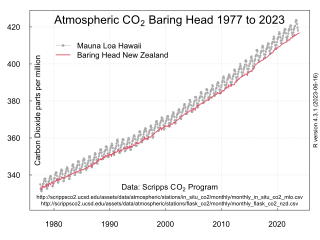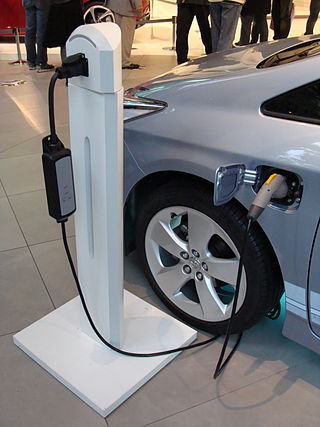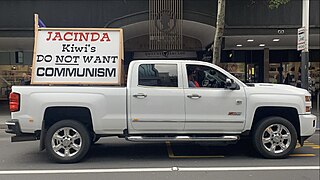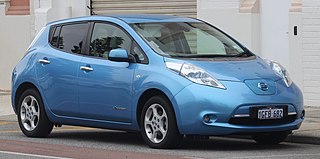Background
In mid–June 2021, the Sixth Labour Government announced that it would introduce subsidies to make electric vehicles cheaper while raising the price of new petrol and new diesel vehicles, commencing in July 2021. [3] This policy announcement followed a report by the Climate Change Commission on 9 June 2021 advocating the reduction of farm animal numbers, a ban on new household gas connections by 2025, and a shift to electric vehicles in order to reduce greenhouse emissions. [4] In response to the policy announcement, EV City owner David Boot said that it would boost demand for electric cars while expressing concern about the need for educating electric car users. Motor Trade Association chief executive Craig Pomare claimed that the rebate would not be enough to encourage motor users to make the switch to electric cars while Federated Farmers national president Andrew Hoggard expressed concerns about the lack of electric vehicle alternatives for farmers and tradespersons. [5]
In July 2021, the farming advocacy group Groundswell NZ called for the abolition of the Clean Car rebate scheme, regarding it as a "ute tax". They said there were no electrical alternatives to the utes widely used by farmers, horticulturalists, industry support people, and tradespersons. [6] [7]
The California Air Resources Board is an agency of the government of California that aims to reduce air pollution. Established in 1967 when then-governor Ronald Reagan signed the Mulford-Carrell Act, combining the Bureau of Air Sanitation and the Motor Vehicle Pollution Control Board, CARB is a department within the cabinet-level California Environmental Protection Agency.
Te Manatū WakaMinistry of Transport is the public service department of New Zealand charged with advising the New Zealand Government on transport policy. The Ministry works closely with other government transport partners, including the New Zealand Transport Agency (NZTA) to advance their strategic objectives.

Federated Farmers of New Zealand is a lobby and advocacy group for all farmers: arable including fruit and vegetables, dairy and meat and their often remote communities. It has a network of 24 regional organisations and six industry groups. Federated Farmers lobbies on farming issues both nationally and within each region. Membership of the organisation is voluntary, and at 2021 it has over 13,000 members.

Climate change in New Zealand involves historical, current and future changes in the climate of New Zealand; and New Zealand's contribution and response to global climate change. Summers are becoming longer and hotter, and some glaciers have melted completely and others have shrunk. In 2021, the Ministry for the Environment estimated that New Zealand's gross emissions were 0.17% of the world's total gross greenhouse gas emissions. However, on a per capita basis, New Zealand is a significant emitter, the sixth highest within the Annex I countries, whereas on absolute gross emissions New Zealand is ranked as the 24th highest emitter.
A scrappage program is a government incentive program to promote the replacement of old vehicles with modern vehicles. Scrappage programs generally have the dual aim of stimulating the automobile industry and removing inefficient, more polluting vehicles from the road. Many European countries introduced large-scale scrappage programs as an economic stimulus to increase market demand in the industrial sector during the global recession that began in 2008.

Electric car use by country varies worldwide, as the adoption of plug-in electric vehicles is affected by consumer demand, market prices, availability of charging infrastructure, and government policies, such as purchase incentives and long term regulatory signals.

Government incentives for plug-in electric vehicles have been established around the world to support policy-driven adoption of plug-in electric vehicles. These incentives mainly take the form of purchase rebates, tax exemptions and tax credits, and additional perks that range from access to bus lanes to waivers on fees. The amount of the financial incentives may depend on vehicle battery size or all-electric range. Often hybrid electric vehicles are included. Some countries extend the benefits to fuel cell vehicles, and electric vehicle conversions.

Julie Anne Genter is an American-born New Zealand politician who is a member of the House of Representatives representing the Green Party of Aotearoa New Zealand. Genter was elected to each Parliament from 2011 to 2023 on the party lists, before being elected as the Member of Parliament for the Rongotai electorate in the 2023 election. She served as the Minister for Women, Associate Minister for Health and Associate Minister for Transport during the first term of the Sixth Labour Government. She holds dual citizenship of New Zealand and the United States.

The adoption of plug-in electric vehicles in the United Kingdom is actively supported by the British government through the plug-in car and van grants schemes and other incentives. About 745,000 light-duty plug-in electric vehicles had been registered in the UK up until December 2021, consisting of 395,000 all-electric vehicles and 350,000 plug-in hybrids. Until 2019, the UK had the second largest European stock of light-duty plug-in vehicles in use after Norway.

The stock of plug-in electric vehicles in California is the largest in the United States, and as of December 2023, cumulative plug-in car registrations in the state since 2010 totaled 1.77 million units. Between November 2016 and until 2020, China was the only country market that exceeded California in terms of cumulative plug-in electric car sales.

The Sixth Labour Government governed New Zealand from 26 October 2017 to 27 November 2023. It was headed first by Jacinda Ardern and later by Chris Hipkins, as Labour Party leader and prime minister.
Heartland New Zealand is a New Zealand political party founded in 2020. The party is rural-based, and opposed the New Zealand Emissions Trading Scheme, the Paris Agreement, and attempts to limit the environmental impacts of agriculture.

The Climate Change Commission is an independent Crown entity that advises the New Zealand Government on climate change policy and monitors the government's progress towards New Zealand's emission reduction goals within the framework of the Climate Change Response Amendment Act. The Commission was established as the successor to the Interim Climate Change Committee following the passage of the Zero Carbon Act in November 2019.

The Howl of a Protest campaign were a series of peaceful protests in New Zealand which occurred on the 16 July 2021. The protests were organised by the farming advocacy group Groundswell NZ in opposition to the Government's new and proposed freshwater regulations, winter grazing rules, indigenous biodiversity regulations, and vehicle emissions feebate scheme. The scheme was particularly contentious among farmers, tradespersons and the agricultural sector since it proposed adding a fee up to $5,000 on motor vehicles with high tailpipe emissions in order to fund electric vehicle subsidies.
Groundswell NZ is a farming advocacy group in New Zealand that was formed to oppose the New Zealand Government's National Policy Statement on Freshwater. The group has also sought to oppose or revise freshwater, indigenous biodiversity, climate change, pastoral land reform policies, and the Three Waters reform programme affecting farmers and rural communities On 16 July 2021, Groundswell NZ staged a nationwide Howl of a Protest campaign in between 47 and 57 cities and towns throughout New Zealand to protest what they regarded as "increasing Government interference, unworkable regulations, and unjustified costs" on the rural sector. On 21 November 2021, Groundswell NZ held a second series of nationwide protests known as the Mother of All Protests.

The initial adoption of plug-in electric vehicles in New Zealand was supported by New Zealand Government policies, including monetary incentives such as electric vehicle discounts, exemptions from road user charges, and electric vehicle sales targets. By 2023 year-end, there were 106,942 registered plug-in electric vehicles in New Zealand, consisting of 76,550 battery-electric vehicles (BEV) and 30,392 plug-in hybrid vehicles (PHEV), together making up 2.2% of the national fleet of 4.8 million vehicles. In 2023, 27.2 percent of all new car registrations were plug-in electric vehicles.
The Mother of All Protests was a series of nationwide protests in New Zealand on 21 November 2021, organised by the farming advocacy group Groundswell NZ to oppose the government's rural sector regulations and policies. Protests took place in 70 cities and towns across New Zealand. Due to controversy around racist signage in the previous Howl of a Protest campaign, Groundswell issued a list of approved messages for participants.
As of March 2021, there were about 4,000 electric vehicles in Delaware. As of May 2023, there were just 142 charging locations located in Delaware, putting Delaware in the bottom 10 states for charging stations in the US. According to official sources only 11 new charging stations have been added in the past two years. Information for Delaware's laws and incentives for electric vehicles can be found at the United States Department of Energy's Alternative Fuel Data Center.
As of March 2022, there were about 76,000 fully electric vehicles and 57,000 plug-in hybrid vehicles in Quebec. As of 2021, about 6.8% of new vehicle registrations in Quebec were electric.

The second term of the Sixth Labour Government of New Zealand lasted between 2020 and 2023. It was formed following the Labour Party's landslide victory in the 2020 New Zealand general election. In mid January 2023, Prime Minister Jacinda Ardern resigned and was succeeded by Chris Hipkins. During the 2023 New Zealand general election held on 14 October, Labour lost its majority to the opposition National Party. The Government remained in a caretaker capacity until the new National–led coalition government was sworn in on 27 November 2023.










